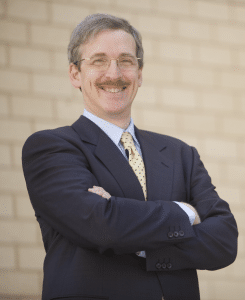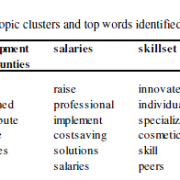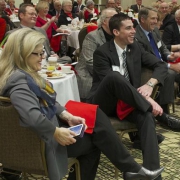Featured Collaborator for November: David Hirshleifer
 Interview with David Hirshleifer, Professor of Finance and Merage Chair in Business Growth, University of California-Irvine
Interview with David Hirshleifer, Professor of Finance and Merage Chair in Business Growth, University of California-Irvine
What are your main areas of research?
I do research in behavioral finance, economics, accounting, and social science more generally. My main focus in recent years has been on how social interactions affect behavior, and on the cultural transmission of beliefs and behavior. See our research page on Accounting, edited by Professor Hirchleifer.
How does moral intuition affect our financial decisions?
In ongoing work, Jonathan Haidt, Siew Hong Teoh, and I argue that moral intuitions infuse all the major aspects of financial-decision-making, such as how much to save versus consume (remember Aesop’s Fable about the ant and the grasshopper?), how much risk to take (is it acceptable/praiseworthy to bet at a gambling casino? Speculative in the options market? Become an entrepreneur), and whether it is acceptable to cheat or mislead others, or withhold relevant information, in financial exchange transactions.
One interesting example is provided by a study which finds that moral concerns affect people’s attitudes toward defaulting strategically on their mortgages:
[The Determinants of Attitudes toward Strategic Default on Mortgages, Luigi Guiso, Paola Sapienza, Luigi Zingales, Journal of Finance, Volume 68, Issue 4, August 2013, 1473–1515]
How does your work on accounting help companies that want to improve themselves as ethical systems? Do moral biases color / impact how companies might go about improving their internal culture?
I would suggest that a casual, intuitive moralistic disdain for corporate `short-termism’ is misplaced. Academic research suggests that, owing to the fact that corporate managers are agents who make decisions with other people’s money, there can be problems of either excessive short-termism or excessive long-termism, depending on the context. In fact, the terms `short-termism’ and `long-termism’ as used casually are often incoherent.
For example, when the stock market places high value upon long-term investment projects (as it does), there can be an incentive for managers to invest more to increase stock prices in the short run. Is that long-termism or short-termism? Furthermore, sometimes use the battle against short-termism as an excuse for questionable behavior such as reducing the frequency of information disclosures to investors.
If you could only highlight one paper or research finding (or piece of work that you’ve been involved with) that relates to Ethical Systems which one would it be and why?
“Opportunism as a Managerial Trait: Predicting Insider Trading Profits and Misconduct,” by Usman Ali, Portfolio Manager at MIG Capital, and myself. We ask the question of whether some managers are `bad apples,’ so that knowing that a corporate manager is opportunistic in one decision domain tell us much about whether the manager will misbehave in some other domain. Similarly, our tests provide insight into whether some firms are more prone than others to opportunistic behaviors of various sorts. We find that profitable insider trading by insiders before quarterly earnings announcements is associated with misconduct of various kinds by managers and the firms that they work for.
Tell us about one of your current or future projects (perhaps something on an upcoming book or paper?)
I am working with Jon Haidt and Siew Hong Teoh on a paper on moral attitudes and financial decision-making. We are exploring how the general moral foundations described by Jon in his past research apply in various contexts to influence people’s attitudes toward different kinds of financial and accounting decisions.
How did you first get interested in your field?
My dad, Jack Hirshleifer, was an economist with wide-ranging interests, including the evolution by means of natural selection of different ethics for behavior, such as reciprocity. My interest in social science started from evening walks I had with him when I was growing up. My more recent interest in moral foundations in finance was triggered by reading Jonathan Haidt’s book, The Righteous Mind: Why Good People Are Divided by Politics and Religion.
If you could only give one piece of advice to companies, what would it be? Do you have any advice for Volkswagen?
Do not focus on the short term- nor on the long term. Focus on maximizing shareholder value (in ethical ways). Doing so appropriately weights the costs and benefits to the firm that occur at different points in time.







